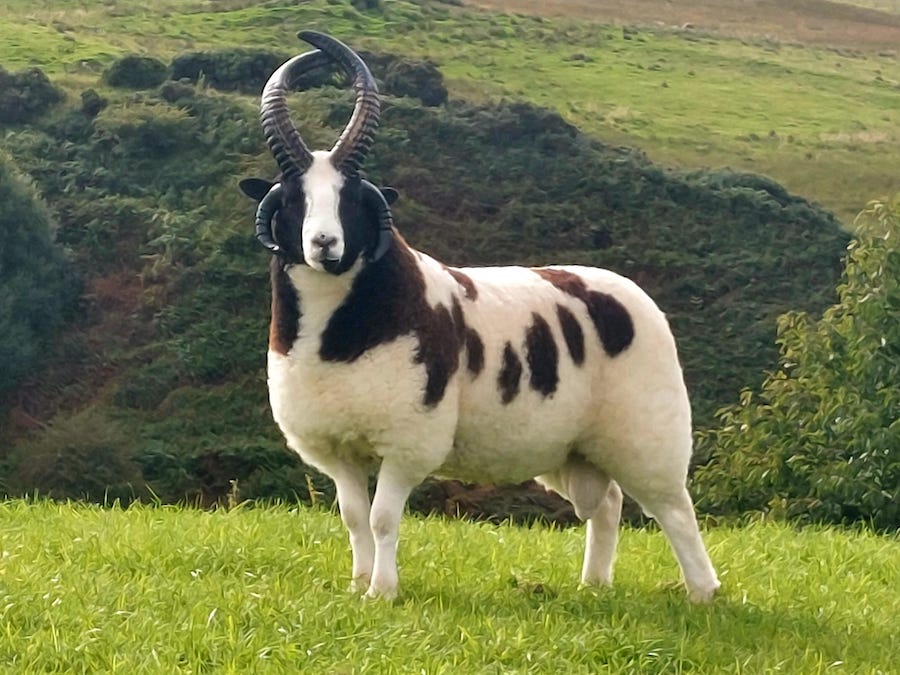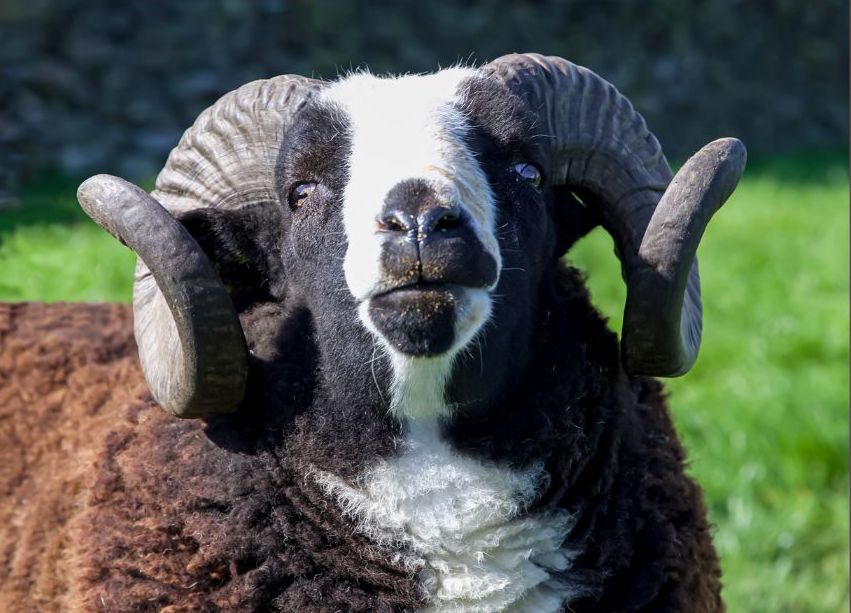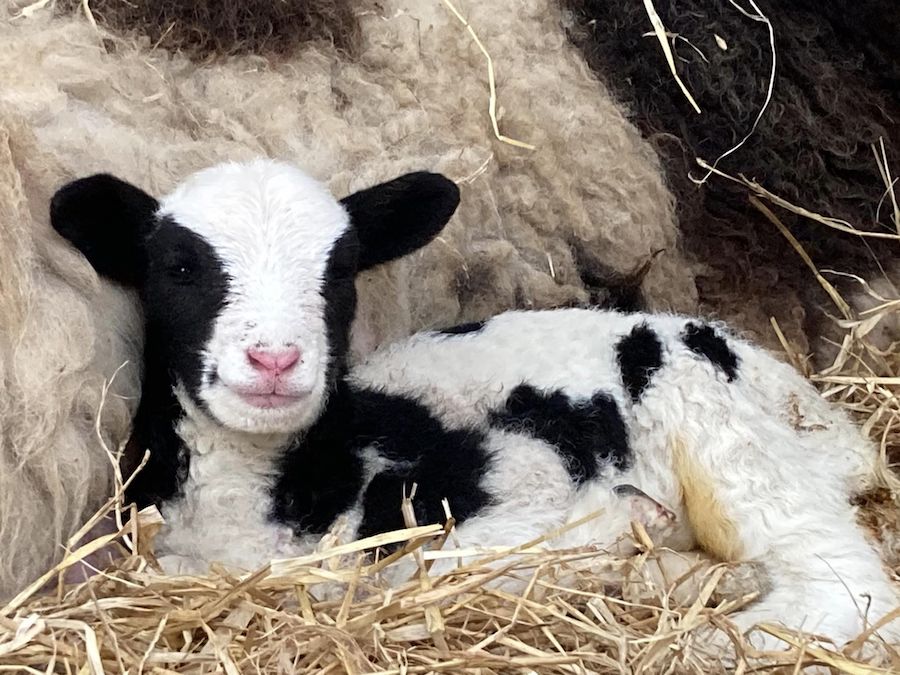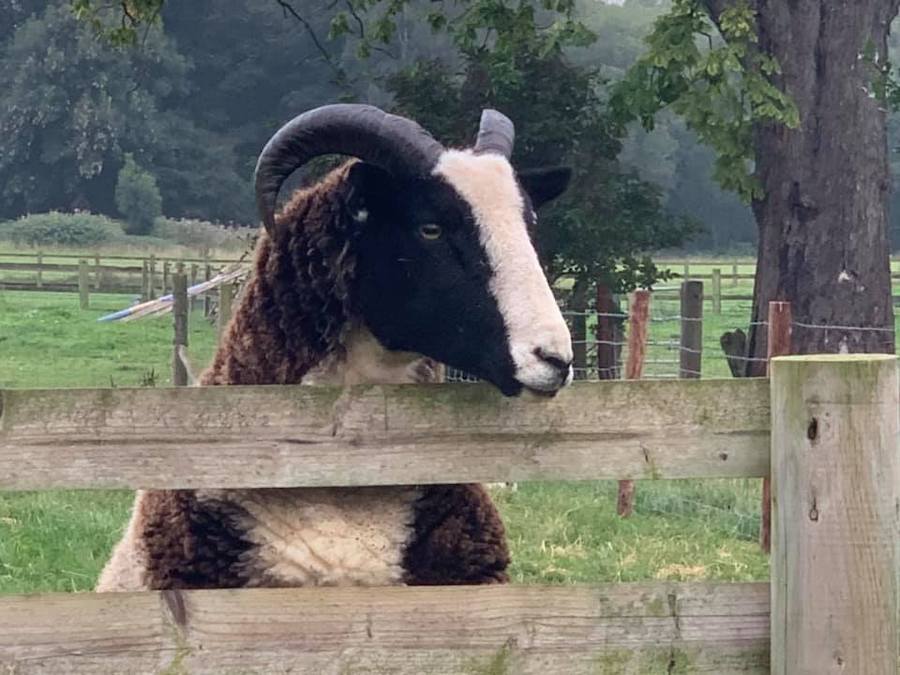Jacob sheep: Distinctive, hardy and good tempered
13th March 2024
Jacob sheep offer a range of advantages, including their hardiness, ease of lambing, good temperament and good flavour – which can command a premium price. Farmers Guide spoke to the Jacob Sheep Society to find out more about the breed.

A breed with a distinctive appearance, wool quality and flavour, most Jacobs are bred pure and the Jacob Sheep Society registers in excess of 3,000 pure-bred lambs every year.
They are not generally kept commercially for crossing with a terminal sire, although they are well suited as crossing sheep and one of the Society’s members runs a flock of 250 Jacob ewes.
The breed is ideally suited to smallholders and small flock owners where its hardiness, ease of lambing, longevity, and friendly temperaments find favour, says Clive Richardson, national field officer at the Jacob Sheep Society.
“Although essentially a horned hill breed, they adapt to all types of grazing and farm systems, and they are very popular in the show ring due to their distinctive appearance,” he adds.
Whilst there are generally Jacobs for sale at prices to suit every budget, the record price is currently 4,600gns for a ram lamb sold in Skipton a few years ago – and a shearling ram made 4,200gns at a Scottish sale last year.

Why keep Jacob sheep?
An ideal breed for both large and small flock keepers, Jacobs offer many beneficial features:
Prolific: High lambing percentages are expected, especially to ewes lambing later in the season. 190% born alive is a realistic lambing percentage.
Easy lambing: The breed is noted for its easy lambing attributes, making it ideal for novice or first time sheep keepers – or those with limited time and labour availability.
Good mothering qualities: Jacob ewes show consistently good mothering qualities and many will successfully produce sufficient milk to rear triplets without supplementary feeding.
Hardy and long-lived: Jacobs are easily over wintered outside and attract few disease problems, the Society says. Jacobs are also less prone to foot health issues compared to many other breeds. Good feet and high health status allow Jacobs to keep breeding for many years – ewes rearing lambs for seven years or more are not uncommon.

Carcass quality and flavour: The breed is ideally suited to deep freeze or farm-gate sales – with its exceptionally full flavour and leanness being retained even in hogget carcasses. Customers who try Jacob lamb supplied direct tend to prefer it to standard products sourced from regular outlets – and are often prepared to pay a premium price for the quality.
When crossed with any of the popular terminal sire breeds, Jacob ewes produce fast-growing lambs capable of meeting the exacting standards of today’s retail trade buyers, the Society adds.
Wool and skin: Jacobs also produce high quality wool which is excellent for spinning and weaving. Additionally it has a unique colour which makes every garment or woven item individual, and its fairly soft demi-lustre is often sought after by local spinning groups and craft makers.
The tanned sheepskins make popular rugs and the skins can be used to make a range of other products. Stick makers seek out horns from mature rams to produce attractive coloured crooks.

Jacob sheep: A history
The breed is thought to originate from the Middle East, with biblical references dating back to the Old Testament. The earliest record in modern times is from the mid-eighteenth century, when a black and white ram and several ewes were shipped from Portugal by British landowner and MP George Lucy, to his home at Charlecote Park, Warwickshire.
The Jacob Sheep Society was formed in 1969 when the breed faced potential extinction, but has since prospered with 800 members currently and in excess of 3,000 registrations a year. Since its early origins, the breed has become well established in the British Isles.
It organises official sales in Scotland, Northern Ireland, Southern Ireland, Wales, and three in England at Worcester, Melton Mowbray and Skipton. It also organises regional open days in various parts of the country, an AGM weekend, Young Handler events, trimming workshops, and other events.
To find out more about Jacob Sheep, or to find your regional board member or learn about events near you, visit the Jacob Sheep Society.
Read more sheep news.

